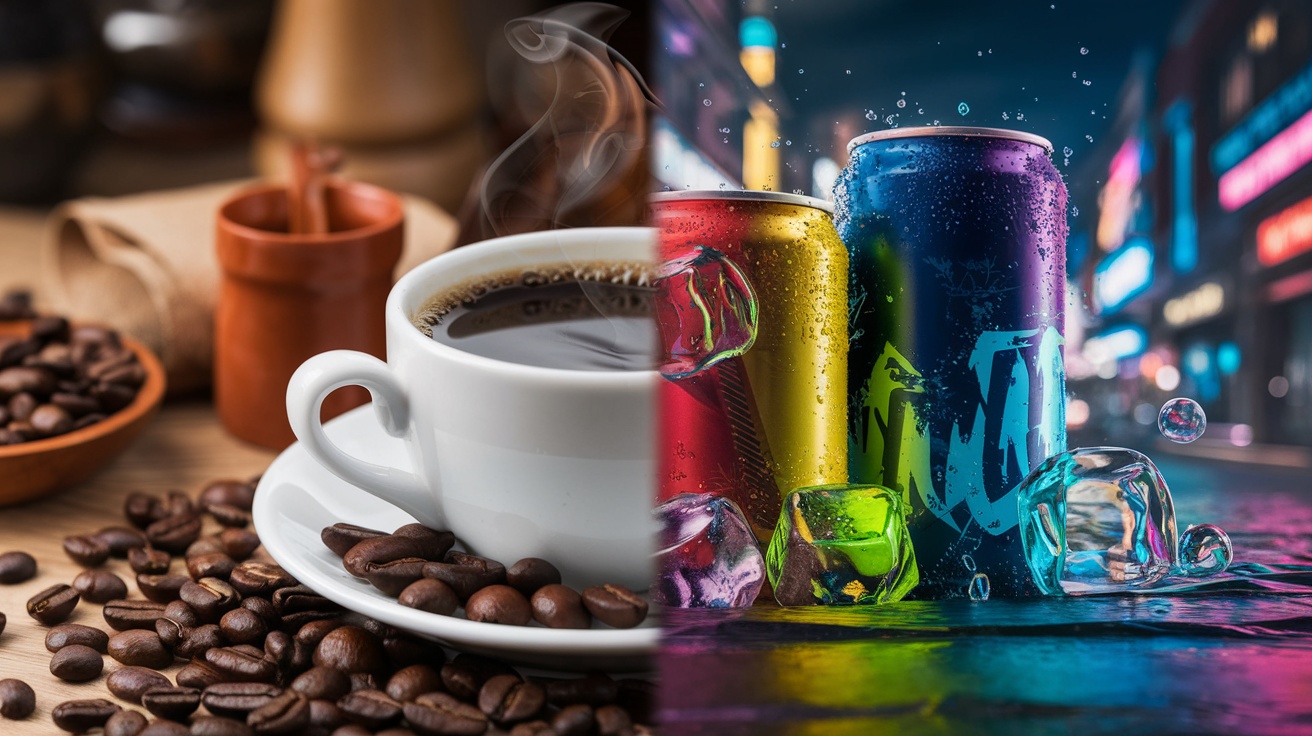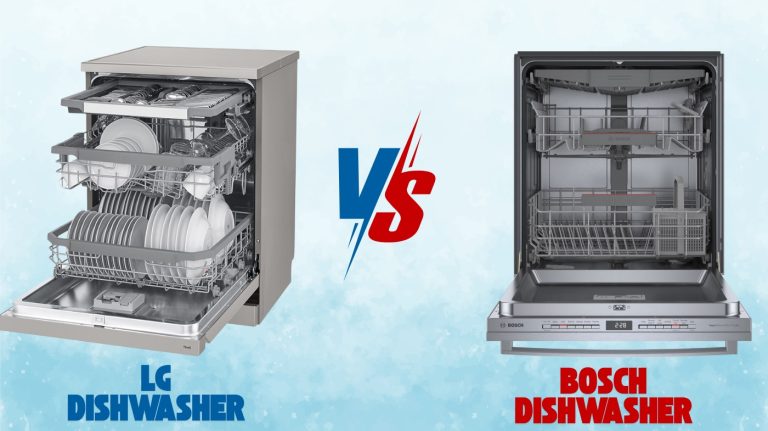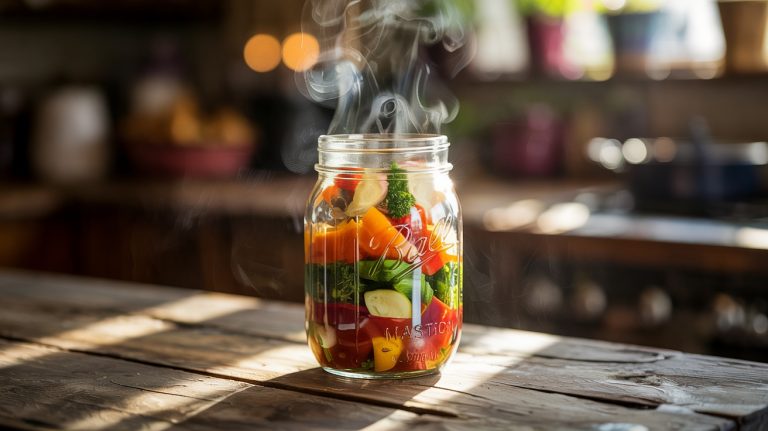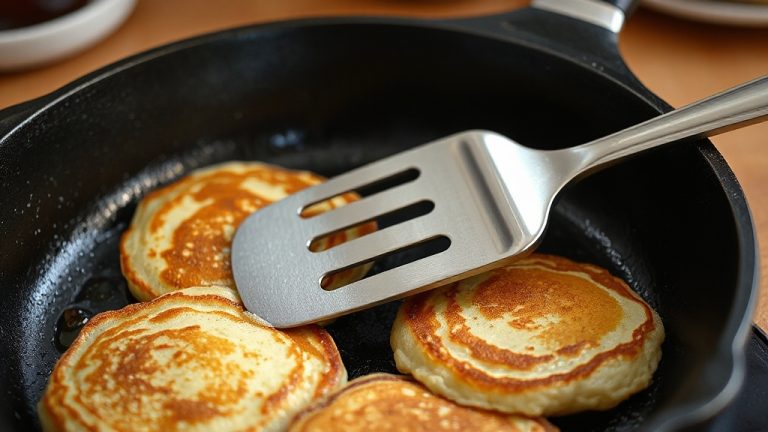Coffee vs Energy Drinks: Which Should You Choose for Energy?
When you compare coffee and energy drinks, you’ll find important differences in health benefits and caffeine content.
Coffee offers about 95 mg of caffeine per 8 oz, plus antioxidants that may lower the risk of diabetes and support metabolic health.
In contrast, energy drinks can range from 70 to 500 mg of caffeine, often packed with sugar that contributes to weight gain and crashes in energy.
While both can give you a boost, coffee is generally a healthier option with fewer risks. If you’re curious about how these choices might impact your day-to-day life, keep going to discover more insights.
Key Takeaways
- Coffee contains about 95 mg of caffeine per 8 oz and is calorie-free, while energy drinks can range from 70 to 500 mg of caffeine per serving.
- Energy drinks often have high sugar content (20 to 30 grams), increasing risks of weight gain and diabetes, whereas black coffee has virtually no sugar.
- Moderate coffee consumption is linked to various health benefits, including reduced risk of Type 2 diabetes and improved metabolism, unlike most energy drinks.
- Energy drinks may cause rapid energy spikes followed by crashes due to their high sugar and synthetic caffeine content, while coffee provides stable energy levels.
- Both beverages cater to distinct consumer preferences, with coffee being a daily ritual and energy drinks appealing to those seeking quick energy boosts.
Coffee or Energy Drinks: A Complete Comparison for Staying Energized
To understand how coffee and energy drinks differ from each other, below is a comparison of both:
Key Ingredients Overview
Energy drinks are often packed with a variety of key ingredients designed to boost energy and enhance mental performance.
The most prominent ingredient is caffeine, with levels ranging from 70 to 500 mg per serving, depending on the brand. This amount can be notably higher than what’s typically found in coffee.
Alongside caffeine, many energy drinks contain added ingredients like guarana, ginseng, and taurine, which are marketed to further improve focus and stamina.
Another common component is sugar, with many energy drinks exceeding 30 grams per serving. While some brands offer sugar-free options, these often rely on artificial sweeteners that can come with their own health risks.
The inclusion of B vitamins is also typical, as these are essential for energy metabolism, but the effectiveness of such additions can vary.
Coffee contains about 95 mg of caffeine per 8 oz, while energy drinks average around 80 mg. However, some energy drinks can pack over 500 mg in larger servings, which can lead to jitteriness or anxiety.
It’s crucial to recognize that much caffeine can cause side effects like heart palpitations and sleep disturbances.
While coffee is calorie-free and rich in antioxidants, energy drinks have become notorious for their high levels of sugar and calories. This can result in energy crashes after consumption, leaving you feeling drained rather than energized.
Additionally, coffee provides a moderate and sustained energy boost, unlike the rapid spikes and crashes associated with the synthetic caffeine and sugar found in energy drinks.
Sugar Content Comparison
Many people find themselves surprised by the high sugar content in energy drinks, which often ranges from 20 to 30 grams per serving. This significant sugar intake can lead to increased calorie consumption and potential health risks, such as obesity and diabetes.
In comparison, black coffee contains virtually no sugar, making it a low-calorie option. The sugar content in coffee only increases when you add sweeteners or creamers.
While some energy drinks offer sugar-free alternatives, these often rely on artificial sweeteners, which come with their own set of health implications. The sugar rush you might experience from energy drinks can provide a quick energy spike, but this is typically followed by a crash, leaving you feeling drained.
Coffee’s minimal sugar content helps maintain a more stable energy level throughout the day.
Market Trends and Consumer Preferences
Coffee and energy drinks are both vying for your attention in a rapidly evolving beverage market, each catering to distinct consumer preferences and lifestyles.
Coffee consumption continues to rise globally, especially as specialty coffee shops gain traction in urban areas where quality matters. For many, coffee serves as a daily habit, providing comfort and connection. With the growing popularity of home brewing, owning the best quality Nespresso machine has become a staple for coffee lovers who want barista-level coffee at home.
On the flip side, the energy drink market is experiencing robust growth, with projections indicating a 7.5% compound annual growth rate through 2025. This surge reflects a growing interest among consumers, particularly younger demographics and athletes who seek quick energy boosts.
Health-conscious consumers are also influencing this landscape, pushing brands to introduce low-calorie options and more natural ingredients.
While coffee maintains its cultural significance, energy drinks appeal to those looking for convenience and immediate energy. Both beverages have loyal followers, and ongoing debates about their health benefits shape consumer choices.
Public Health Considerations
The rise in popularity of energy drinks, especially among teens and young adults, raises significant public health concerns. Studies show that up to half of this demographic consumes energy drinks, which often contain high levels of caffeine and sugar.
This combination is linked to increased risks of obesity, diabetes, and cardiovascular issues, making it critical for you to be aware of what you’re consuming.
While energy drinks promise enhanced athletic performance, their nutritional profiles often fall short compared to coffee.
Coffee, with its lower sugar content and numerous health benefits, has been extensively researched, whereas the long-term effects of energy drinks remain less understood.
This lack of information heightens the need for educational initiatives aimed at informing the public about safe caffeine consumption levels.
Caffeine Safety Guidelines
Healthy adults can typically consume up to 400 mg of caffeine per day, equivalent to about four cups of coffee or two grande coffees.
However, if you’re pregnant, it’s advised to limit your caffeine intake to under 200 mg daily to protect your fetus.
Energy drinks contain a significant amount of caffeine, generally between 100 to 300 mg per can. This makes it essential to monitor your consumption closely to stay within safety guidelines.
Excessive caffeine intake can lead to various side effects, including anxiety, digestive issues, and irregular heartbeat, emphasizing the need for moderation.
To make a healthier choice, be aware of all your caffeine sources, including coffee, tea, and energy drinks.
Health Benefits of Coffee
Coffee offers a wealth of health benefits that can positively impact your life. Rich in antioxidants and essential nutrients like niacin, riboflavin, potassium, and magnesium, coffee promotes overall health.
Research shows that regular coffee consumption is linked to a reduced risk of Type 2 diabetes and cardiovascular diseases. This means that enjoying your morning cup could be a proactive step toward better long-term health.
Additionally, studies indicate that coffee drinkers may experience lower incidences of liver disease and neurodegenerative disorders such as Alzheimer’s and Parkinson’s.
If you’re an athlete or someone looking to manage weight, coffee’s metabolism-boosting properties can enhance your performance and support your efforts. And if you love espresso, learning how to make espresso with a coffee maker can elevate your coffee experience.
While it’s crucial to acknowledge that coffee can cause issues like heartburn and digestive upset—especially with added sugars—the health benefits greatly outweigh these concerns when consumed in moderation. To ensure your coffee maker continues to serve you delicious brews, it’s important to regularly clean a coffee maker to remove any buildup and maintain optimal flavor.
Frequently Asked Questions
Which Is Healthier, Coffee or Energy Drinks?
When considering which option is healthier, you’ll find that coffee generally offers more benefits than energy drinks.
It’s rich in antioxidants and low in calories, supporting better weight management. The caffeine in coffee is absorbed more slowly, providing a steady energy boost without the crash often associated with energy drinks.
Plus, fewer coffee drinkers report negative side effects.
While energy drinks can provide quick energy, they often come with added sugars and health risks.
How Many Coffees Equal One Red Bull?
If you’re wondering how many coffees equal one Red Bull, it largely depends on the coffee’s brewing method.
A standard 8-ounce cup of coffee typically contains between 75 to 200 mg of caffeine, while an 8-ounce can of Red Bull has about 80 mg.
How Much Caffeine Is in 5 Hour Energy Compared to Coffee?
When you reach for 5 Hour Energy, you’re grabbing about 200 mg of caffeine in just 2 ounces, a potent shot compared to coffee’s 95 to 200 mg in an 8-ounce cup.
While 5 Hour Energy delivers a quick caffeine hit, coffee offers a more gradual energy release.
Both can affect you differently, so it’s essential to monitor your intake, keeping it under 400 mg daily for ideal health.
Choose wisely for your energy needs!
Is One Energy Drink a Day Ok?
Yes, one energy drink a day is generally considered okay for most healthy adults, as it typically falls within the recommended caffeine limit.
However, you should watch out for added sugars, which can lead to health issues over time.
It’s vital to pay attention to how your body reacts, since some people might feel jittery or anxious even with a single serving.
Balancing energy drinks with a healthy lifestyle is essential for overall well-being.
Make Informed Choices Between Coffee and Energy Drinks for a Healthier Lifestyle
In the caffeine showdown, both coffee and energy drinks have their merits, but knowing what fuels your body is key. Think of coffee as a warm hug, offering numerous health benefits and a steady caffeine release, while energy drinks can be a quick, albeit risky, jolt.
By weighing their compositions and considering public health guidelines, you can choose wisely. Ultimately, understanding your preferences and health needs will guide you to the right caffeinated companion for your lifestyle.







